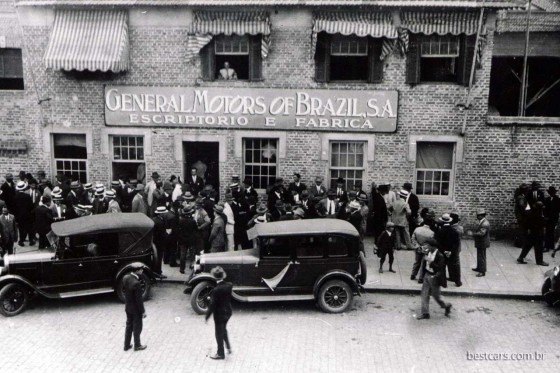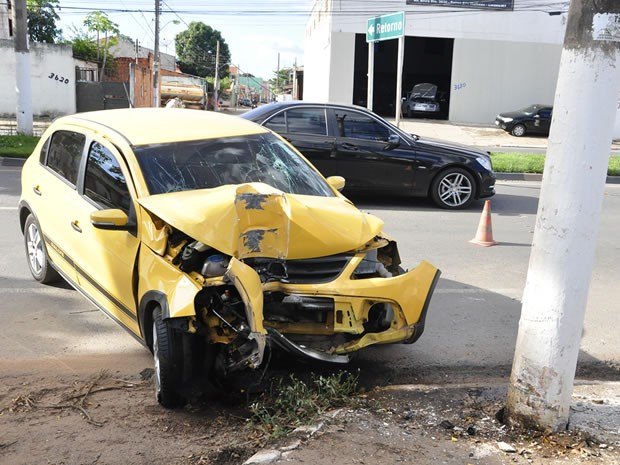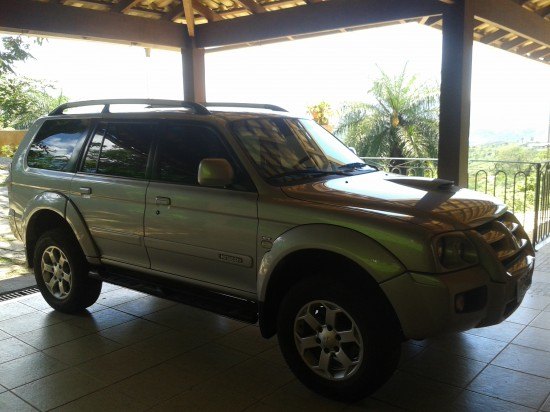#DispatchesDoBrasil
Dispatches Do Brasil: Renault Re-Invents Itself in Latin America
Renault Logan
Among the first to come to Brazil when the market was opened up again in the 1990s – after a hiatus of almost 50 years when this country closed itself off to the world – Renault has seemingly reached a limit in Brazil. Its market participation has hovered around 6 percent for years. Now, hungry for more, the French company is showing its new plans that will deeply affect their operations in Latin America at large and shake up their manufacturing base in South America, most especially Mercosur (namely Brazil and Argentina).
Dispatches Do Brasil: Renault Sandero Stepway
Oh, Brazil. Not having the cars, the will or possibly the means to offer proper SUVs to customers back in the 90s, local makes did as the always do and improvised. Raise up the suspension, modify it (or not) as needed, insert bigger wheels, add lots of plastic cladding and graphics, and your pseudo-SUV common hatch or station wagon is magically transformed into an “aventureiro”.
Dispatches Do Brasil: Compact SUV Fever
Like it or not, compact SUVs, particularly B-segment vehicles, are the segment to be in right now. They may be anathema to enthusiasts in the developed world, but in developing markets, their is no hotter property. In Brazil, where the Renault Duster and Ford Ecosport have reigned supreme, the market has just gotten a bit more crowded.
Dispatches Do Brasil: How Volkswagen Lost the Market, Part II (1990s to Present)
And then came the 90s.
With democracy finally back, a new Constitution, and new economic ideas and policies forcing the market open, the slow pace of the 80s suddenly gave way to much friskier times. General Motors was the first to make use of the opportunities, they would import systems and brought on the best Opel had to offer. The Corsa was launched and soon had long waiting lists and people paying over list price. It followed Fiat’s plan, a small car with lots of color and accessory options. Two door and four doors. Soon, sedan, station wagon and a pickup version. All highly successful, all putting pressure on the Gol and derivatives.
Dispatches Do Brasil: How Volkswagen Lost the Market, Part I (1950s-1980s)
There are a couple of things that mark Brazilians of all stripes. Football (the “real” world type) is surely one. There are many others. “Feijoada” is something almost every Brazilian loves, and the “caipirinha” drink has been a constant forever. However, things change. Brazilians now drink more beer than “cachaça” that is the basis for caipirinha and the city of São Paulo boast more sushi bars than Tokyo and eats more pizza than Rome, Milan and Turin combined.
Dispatches Do Brasil: 40 Years Of Pr-lcool
As I pulled into the gas station last week, I faced a decision. Regular gasoline was on sale for R$3,199 a liter, while ethanol (or “álcool” as we old timers insist on calling it) was R$2,299. That meant the sugarcane derived fuel was 71.8% of the price of gasoline. Bearing in mind that gasoline in Brazil is actually E25 and will soon be E27, the rule of thumb is that if the price of ethanol is 70% that of gasoline, it compensates to pump it in spite of the mileage drop.
Dispatches Do Brasil: A 2008 Fiat Stilo Flex and the Search for Credibility
Bad reputations are earned in short order and shed only after many years of good behavior. For car companies, such bad raps come relatively quickly and sometimes decades are needed to overcome them. For Fiat, the cute sobriquet Fix-It-Again-Tony seems to be unavoidable no matter how they actually compare in most reliability studies. The fact is they routinely do better than most European rivals and still have to improve to reach Toyota-like reliability. So, the strive for credibility must go on.
Dispatches Do Brasil: 1975 Ford Corcel Luxo
The year was 1968 and it was a good one for Brazilian motorists. GM launched its Opala and Volkswagen its 1600 (sedan). Meanwhile, Ford launched its first car aimed at a broader swath of the market, the Corcel. Up until that time Ford aimed at better off consumers and commercial applications. Its only car was the Galaxie 500 and F100 pickup besides medium and large trucks. It signaled the future direction of the market in Brazil as this Ford was in reality a Renault…
Dispatches Do Brasil: VW Gol, Still The One
If the Volkswagen Gol is no longer Brazilians’ sweetheart after 27 long years as the most sold car in this market, there is another whole segment of automotive sales where the Gol unequivocally leads. That is that of secondhand car sales. Does this mean the Volkswagen is still favored by most Brazilians or is it simply a reflection of the Gol’s lost, but decades old, sales crown?
Dispatches Do Brasil: Nonagenarian General
The first car Brazilians ever saw in their own country was brought in from France in 1890 by Alberto Santos Dumont of later first dirigible, plane and wristwatch glory. It caused quite a stir in the streets of Rio de Janeiro. Soon, other wealthy men began importing cars and there are reports of street racing and accidents between the cars themselves, pedestrians and horses.
Dispatches Do Brasil: Volkswagen's Inferno and the Gol's Fall From Grace
How much is first place worth? How much difference would it make to you as an automaker to see a decades old tradition die? How much would you do to try to keep first place and how much would it hurt to see it all go away?
Dispatches Do Brasil: 2015
As I sit here and ponder on the year gone by, quite a few salient facts spring to mind. In fact just-auto.com has just written a little ditty that offers some numbers that confirm my observations offered to TTAC readers first. The highlight of the auto year in Brazil is no doubt, the emergence of the New Brazilian Consumer.
Dispatches Do Brasil: 2010 Mitsubishi Pajero Sport
Recently I went car shopping with a friend. We were looking at cars I’d rather not check out, but that struck his fancy . While crossovers were initially at the top of his list, he ended up with a 2010 Mitsubishi Pajero, which you may know as the Montero. Being Brazil a Portuguese-speaking countries, Mitsubishi found it safe to use the Japanese market name – in Spanish, it means something naughty.
Dispatches Do Brasil: Shattered Glass And Small Pickups
Youthful exuberance or nihilism? Urban despair or boredom? Lack of repression and punishment or the inevitable result of the marked differences in income and social-economic status in Brazil? All these questions sprang into my mind as I walked back to the car and saw it there, its back hatch window violated by a brick.
Dispatches Do Brasil: How I Killed the Sports Car
Reading here on TTAC that a BMW executive declared the sports car dead was a sad day for me. Yes, I am one of those who bemoan the passing of beautiful, personal cars like those, whether or not sprinkled with the fairy dust of power. I’m not talking Ferrari here, I’m talking simpler things, like an Opel Tigra, or a Ford Puma, maybe even an old VW Karmann Ghia or a fiberglass, old Beetle motivated, Brazilian Puma GT. Cars like those allowed their everyday owners, with common pocketbooks, to dream of performance and a more enchanted life, in spite of sometime ordinary engines, as their designs were always something else.






























Recent Comments